5 great foreign writers who were influenced by Russia’s literary giants

Above L-R: Viriginia Woolf, William Faulkner; Ernest Hemingway; Below L-R: Orhan Pamuk; Pablo Neruda
wikipedia.orgVirginia Woolf and Leo Tolstoy
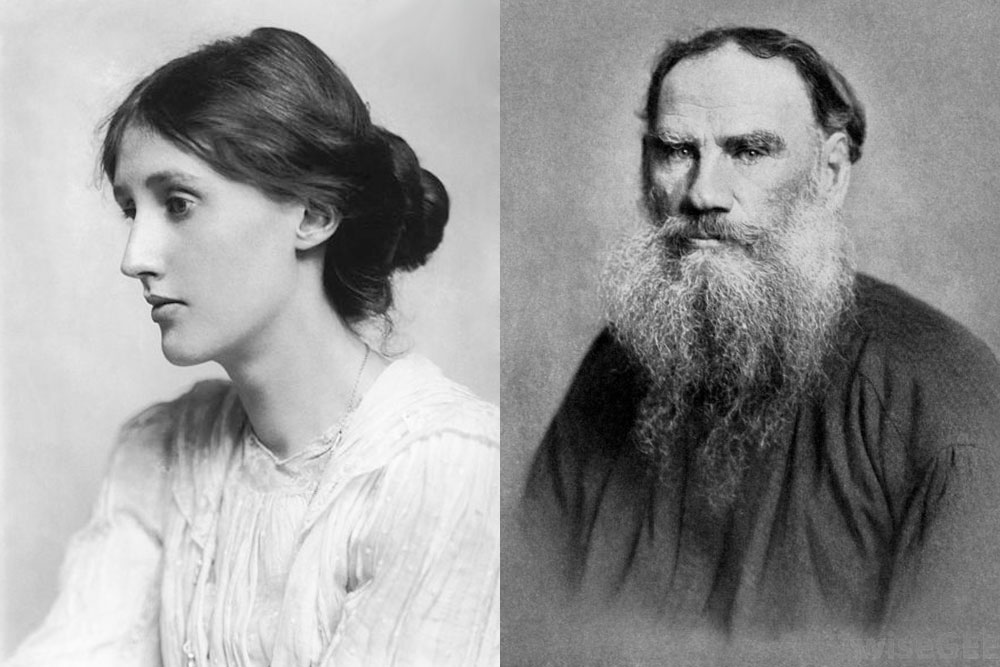 Virginia Woolf and Leo Tolstoy. Source: George Charles Beresford / wikipedia.org; open sources
Virginia Woolf and Leo Tolstoy. Source: George Charles Beresford / wikipedia.org; open sources
The modernist English writer was in complete awe of Leo Tolstoy, showering him with the highest praise. In her essay The Russian Point of View, Woolf called Tolstoy the “greatest of all novelists.” In the essay, Woolf explored the depth of the Russian writer’s works, making some sharp observations of her own.
“From his first words, we can be sure of one thing at any rate — here is a man who sees what we see, who proceeds, too, as we are accustomed to proceed, not from the outside inwards but from the inside outwards,” Woolf wrote of Tolstoy.
Woolf described Tolstoy’s senses and intellect as “powerful, accurate and well nourished.” In the essay, she wrote, “Nothing seems to escape him. Nothing glances off him unrecorded.”
The influence of Tolstoy’s War and Peace and Anna Karenina on Woolf is visible in Mrs. Dalloway and To the Lighthouse. In Mrs. Dalloway, Woolf uses interior monologues to describe the memories of Clarissa Dalloway and Peter Walsh in a flashback format, showing clear traces of Tolstoy’s style.
Orhan Pamuk and Fyodor Dostoyevsky
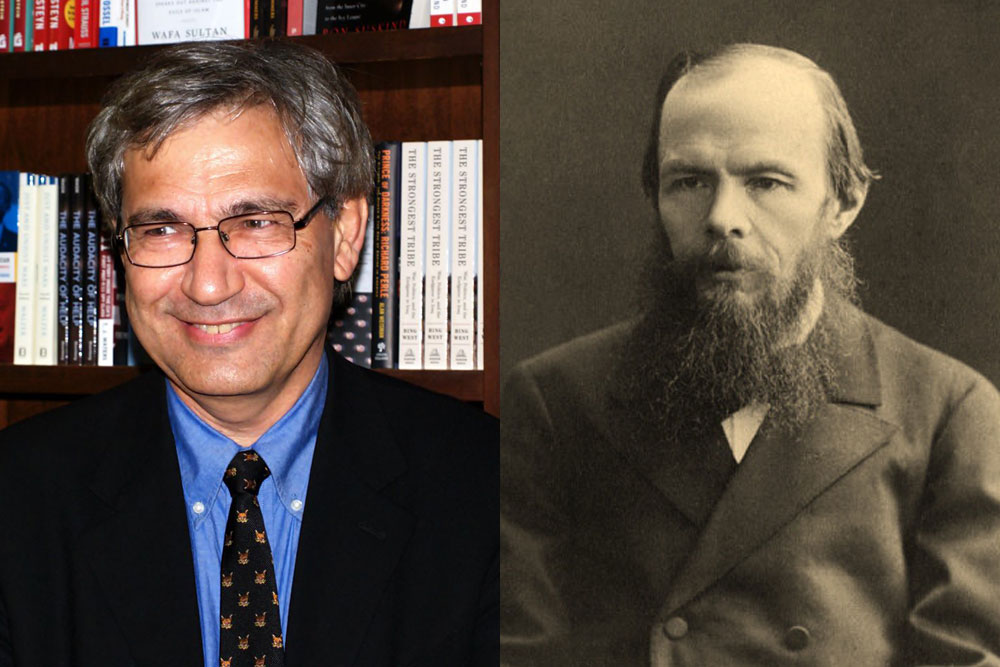 Orhan Pamuk and Fyodor Dostoevsky. Source: David Shankbone / wikipedia.org; Vasily Perov / State Tretyakov Gallery
Orhan Pamuk and Fyodor Dostoevsky. Source: David Shankbone / wikipedia.org; Vasily Perov / State Tretyakov Gallery
It just takes a cursory glance at Turkish Nobel laureate Orhan Pamuk’s works to see the strong influence of Fyodor Dostoyevsky.
In his novel My Name is Red, Pamuk describes the Istanbul of the past in a way that echoes Dostoyevsky’s descriptions of 19th century St. Petersburg.
When once asked about his admiration for Dostoyevsky, Pamuk said: “Dostoevsky is an author with whom I tend to identify. I have learned a lot from him.”
While drawing parallels with Dostoyevsky, the Turkish writer said that like the great Russian writer, he was embedded his own culture that, unlike Western culture, has never been the center of the world.
“In Notes From the Underground, Dostoyevsky was waging a war against shallow Occidentalists, didactic writers who were always extolling the wonders of the West,” Pamuk said. “He was angry at the West and the Westernizers for looking down on his people.”
Pamuk added that like Dostoyevsky, he also “carried a certain anger and resentment.”
William Faulkner and Anton Chekhov
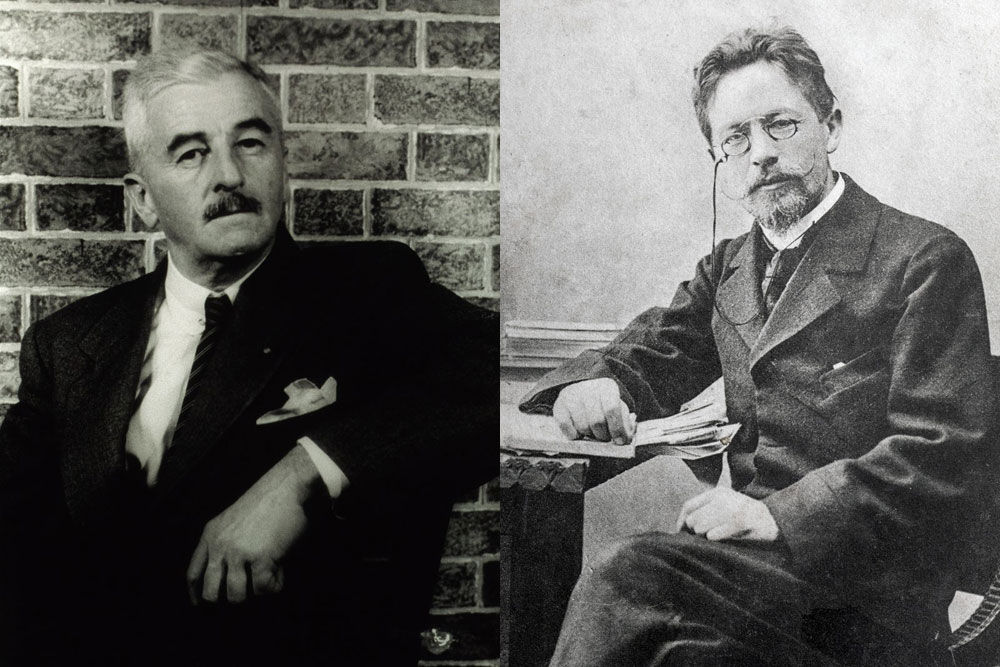 William Faulkner and Anton Chekhov. Source: Carl Van Vechten / wikipedia.org; Lori / Legion Media
William Faulkner and Anton Chekhov. Source: Carl Van Vechten / wikipedia.org; Lori / Legion Media
While praising the Russian playwright, the Nobel-prize winning novelist from Mississippi once famously said that it was more difficult to write a short story than a novel.
“You can be more careless, you can put more trash in [a novel] and be excused for it,” Faulkner said “In a short story that’s next to a poem, almost every word has got to be almost exactly right. In the novel you can be careless, but in the short story you can’t. I mean by that the good short stories, like Chekhov wrote. That’s why I rate that second — it’s because it demands a nearer absolute exactitude.”
Faulkner’s A Rose for Emily almost feels like a tribute to Chekhov’s The Lady with the Little Dog. Although the settings are vastly different — one story set in late 19th century Russia and the other in Reconstruction-era Mississippi — they share a common theme of obsessive love and each features a strong-willed woman whose values get in the way of happiness.
Ernest Hemingway and Ivan Turgenev
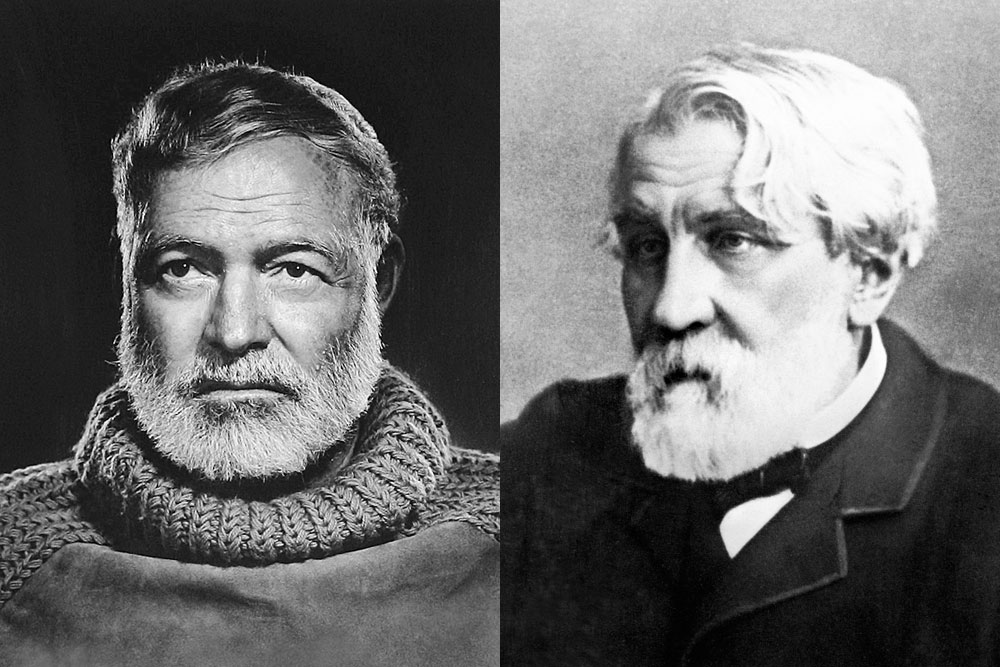 Ernest Hemingway and Ivan Turgenev. Source: Open sources; TASS
Ernest Hemingway and Ivan Turgenev. Source: Open sources; TASS
In Hemingway’s memoir A Movable Feast, written about his years as a struggling writer in Paris in the 1920s, the great American writer and Nobel laureate mentioned that he read the works of Turgenev carefully.
Hemingway lavished praise on the Russian writer, and Turgenev’s 1852 collection of short stories entitled The Hunting Sketches had a great impact on Hemingway’s writing.
According to Kelley Dupuis, Hemingway told American poet Archibald MacLeish that he believed Turgenev to be “the greatest writer there ever was,” adding “War and Peace is the best book I know, but imagine what a book it would have been if Turgenev had written it.”
Turgenev’s The Hunting Sketches was an unconventional book that provided small glimpses into people, places and situations, and Hemingway took his cue from this when he wrote some of the greatest short stories of the 20th century.
Pablo Neruda and Vladimir Mayakovsky
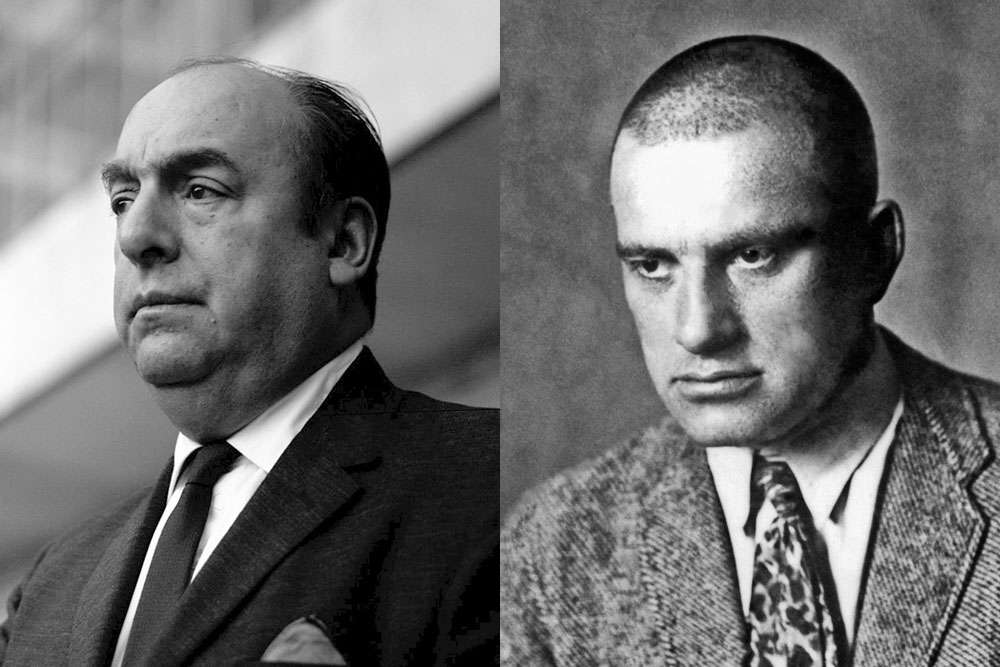 Pablo Neruda and Vladimir Mayakovsky. Source: Open sources / TASS
Pablo Neruda and Vladimir Mayakovsky. Source: Open sources / TASS
Mayakovsky’s futurist poetry, which moved away from the established norms by using raw language and showcasing common folk, found a large number of admirers, especially in South America, — including the Chilean poet and Nobel laureate Neruda, who was an admirer of the Soviet Union.
Soviet-era writer Ilya Ehrenburg, who translated the works of Neruda into Russian, wrote that the Chilean poet developed a liking for Mayakovsky from an early age. Neruda was inspired by Mayakovsky’s “sincerity, rejection of conventions and his thunderous voice,” according to Ehrenburg.
Neruda believed that Mayakovsy depicted the social reality of the Soviet Union in a complex and contradictory manner. About Mayakovsky’s work,Neruda wrote: “Mayakovsky has the hard issues of struggle circulate in his poetry, the monotonous topics of meetings, and these affairs flower in his poetic word, they become prodigious arms, red lilies.”
Neruda’s realist poems followed in Mayakovsky’s footsteps.
Bernard Shaw, H.G.Wells, Mark Twain —read more about the writers, inspired by Russia
All rights reserved by Rossiyskaya Gazeta.
Subscribe
to our newsletter!
Get the week's best stories straight to your inbox